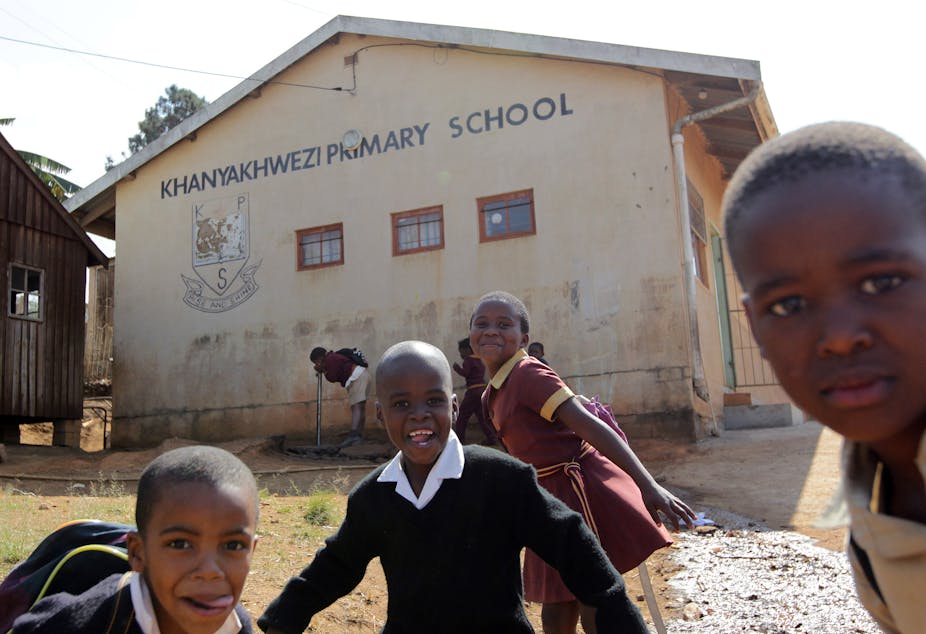The recent open letter of concern penned by nearly 100 academics from around the world about the Organisation for Economic Co-operation and Development’s international education rankings is more than just a protest.
Their criticism of the Programme of International Student Assessment (PISA), calling on its director Andreas Schleicher to halt the next round of tests in 2015, provides real alternatives and suggests a role for the global education community to monitor the administration of the tests.
These questions are particularly pertinent as the OECD embarks on plans to extend the programme to developing countries. Pilots of PISA for Development are currently underway in Zambia and Ecuador.
The academics’ objections highlight a fundamental set of questions about PISA. Of particular worry to the experts are the dangers of over-testing, the short-term emphasis on measurable results versus longer-term issues like citizenship and caring, and the purely economic-investment-jobs matrix for education.
On one hand, perhaps the OECD needs to power on. Yet the academics’ warnings are apposite. Another must also be added to them: the tests are not culturally sensitive because they avoid a country’s infrastructure, both physical and human. What is a purely South African, or Malaysian, or Korean, or Crimean solution to the educational problems PISA highlights?
So perhaps the call to halt the juggernaut is the right one. No one has been able to show that the European emphasis on measurable results and league tables will get us anywhere. It has become fashion.
In South Africa, which is not a part of PISA, “in my day” has become an catch-all response to worries about education standards. Whether this is around the controversy on a 33% pass mark for end-of-school leaving exams, or discipline, or the extent of learning, the past is idealised.
Yet in my day, teachers were only interested in pay-cheques, no one read, school was a joke and 33% was still the pass mark. Needless to say, I did not adopt these scriptures, nor aimed as low as was allowed. Today, my education reaps the benefits for me.
Poor maths skills
I think we need to be the best we can be. We have to compete. So PISA helps here, and league tables tell us we have a long way to go to be a winning nation. Yet win we have to. The world is competitive and cut-throat.
In South Africa, our own annual national assessments tell us we are not getting good enough maths or reading results at early foundation phase level. In the most recent maths tests in 2013, students in grade 4 scored an average of 37%, while those in grade 5 scored 33%. We have a problem. Whether we look at international measures like Trends in International Mathematics and Science Study or others, we are close to bottom of the league table.
South Africa has been chosen as home to a section of the Square Kilometer Array radio telescope, that will tells us what the southern stars look like and how they were formed. Can we interpret all the data coming in? Can we keep a satellite in space to send video and data where it is needed?
We need to find a cure in Africa for malaria, a disease that floors millions of young children. Yet, with the right science, this disease should be easily curable. Similarly, HIV/AIDS is now primarily a Sub-Saharan disease. We need the best scientists to find a cure.
So we need the best mathematicians and scientists. If we wait for Europe to find a cure for AIDS, or find the antidote for malaria, or even to measure our stars, we will wait forever. We need our scientists, dedicated to our people. But we have never had this discussion and there is no quick fix.
Dr Hendrik Verwoerd, the prime minister who was the architect of apartheid, banned black people from getting maths degrees. Now we have a shortage of maths teachers, and anyone worth their salt, who can do maths, wants to be an engineer or an accountant or economist – not a maths teacher.
It will not happen overnight, no matter how much we may wish or shout for it. This is not to blame history but to be realistic. This discussion includes teachers and the central role that has to be built for them in society. Fervent wishes can never replace a plan.
I do not want to undermine the questions being asked of PISA. There is a need for academics and others to stand together. I cannot say that South Africa should participate. But we do need to compete, we do need a measure to show we are not falling behind.
This may not be through more testing, it may not even be technical. But we need at least an “educational” solution or a national discussion in every country on where we are going and the kind of education that will get us there.

